Thinking about making a move to Ethiopia or simply curious about what it costs to live there? You're in the right place. Ethiopia, with its rich history and diverse culture, is becoming an increasingly popular destination for expats and travelers alike.
As you'd expect, the cost of living in Ethiopia can vary widely depending on your lifestyle and the city you choose to live in. Addis Ababa, for instance, is notably more expensive than smaller towns and rural areas. But don't worry, this guide is here to navigate you through the essentials—housing, food, transport, and more.
Whether you're planning to stay for a few months or considering a longer-term move, knowing the ins and outs of living expenses will help you plan your budget better and make your stay more enjoyable. So, let’s dive into what you can expect when living in Ethiopia in 2024.
- Introduction to Ethiopia
- Housing Costs
- Food and Groceries
- Transportation
- Healthcare
- Entertainment and Miscellaneous
Introduction to Ethiopia
For many, Ethiopia conjures images of ancient history, vibrant festivals, and stunning landscapes. Nestled in the Horn of Africa, Ethiopia is a country that seamlessly blends the old and the new. Home to over 118 million people, it is Africa’s second most populous country. The capital, Addis Ababa, often called the 'political capital of Africa,' hosts the headquarters of the African Union and numerous international organizations, making it a bustling hub of diplomacy and commerce.
Historically, Ethiopia is a land of many firsts. It is one of the oldest nations in the world, tracing its roots back over 3,000 years. Ethiopia is officially recognized as the birthplace of coffee, and it's also the place where the famous fossil
Housing Costs
Housing costs in Ethiopia can vary greatly depending on where you choose to live. In the bustling capital of Addis Ababa, rental prices are generally higher compared to smaller cities and rural areas. A one-bedroom apartment in the city center can cost around $300 to $600 per month, while the same apartment outside the city center could be priced at about $200 to $400 per month. If you are looking for a more luxurious option, rental prices can go well above $1,000 monthly.
In contrast, living in smaller towns or rural areas significantly reduces housing expenses. For instance, you could rent a similar one-bedroom apartment for as low as $100 to $200 per month. Additionally, buying property in Ethiopia is an option for long-term residents. The cost of purchasing a home in Addis Ababa may range from $70,000 to $200,000, depending on the neighborhood and the size of the property.
Utilities are another significant part of the housing costs. Monthly bills for electricity, water, heating, and garbage collection can amount to around $50 to $100, depending on your usage and the size of your house. Internet is also an essential expense, with costs ranging from $25 to $50 per month for a decent connection.
Keeping all these factors in mind, it's crucial to budget properly for housing if you are planning to move to Ethiopia. The disparity in pricing between the city and the countryside provides options for various lifestyles and preferences. Working closely with a trusted real estate agent can also help you find the best deals and navigate legal complexities.
Finally, consider short-term accommodations like Airbnb for temporary stays. They offer flexibility and are often furnished, which might help ease the transition while you search for a permanent place. Whether you’re renting or buying, understanding housing costs can significantly impact your living experience in Ethiopia.
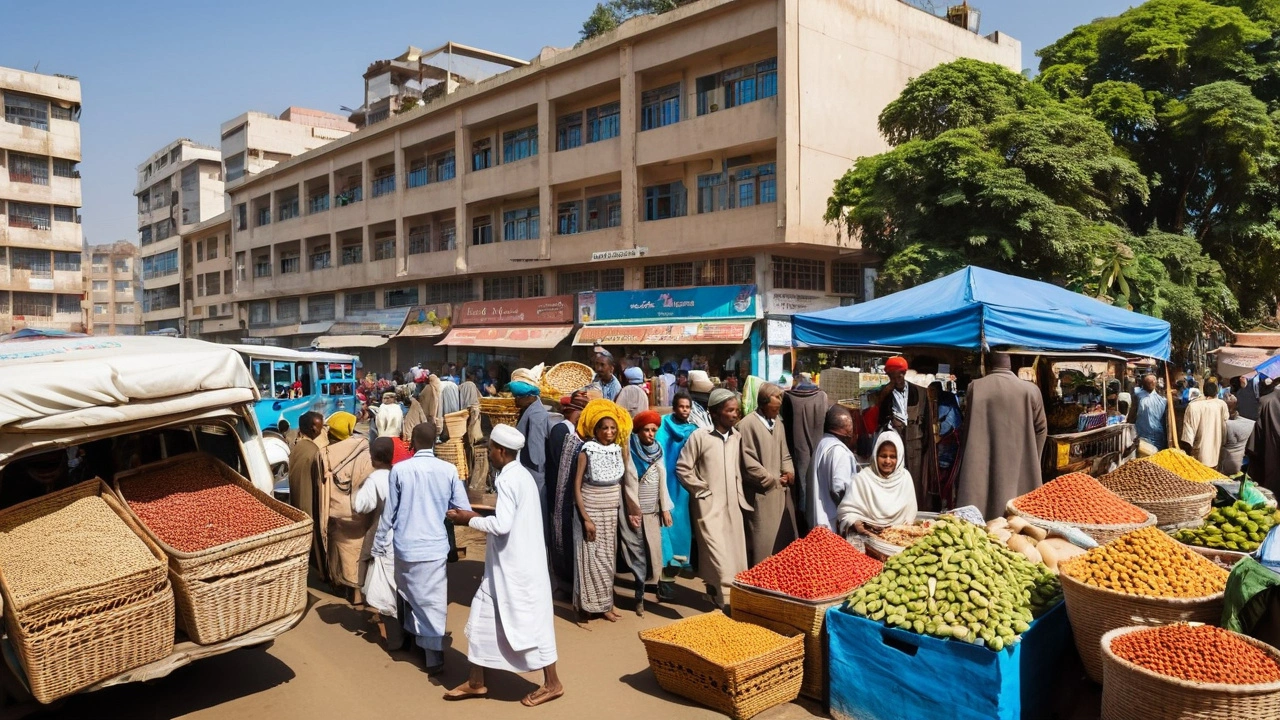
Food and Groceries
Food is a fundamental part of Ethiopian culture, and you’ll find that groceries and dining out can be quite affordable if you know where to look. Ethiopia is famous for its rich and unique cuisine, with dishes like injera, a type of sourdough flatbread, and wat, a spicy stew, being staples in the diet. Local markets in cities like Addis Ababa offer fresh produce at very reasonable prices, while supermarkets provide a range of imported goods, though at slightly higher costs.
On average, a meal in a mid-range restaurant might cost you around $5, while dining at a high-end restaurant could set you back about $15-$20 per person. If you prefer cooking at home, expect to spend roughly $200 per month for a balanced diet, which will cover essentials like bread, eggs, vegetables, fruits, rice, and meat. Traditional markets, known locally as souks, are excellent places to purchase fresh vegetables, fruits, and spices at more affordable prices compared to supermarkets.
Many expats highlight the affordability and quality of local produce. One visitor noted,
"Living in Ethiopia has been a wonderful culinary adventure. The freshness of local produce is unparalleled, and it's incredible how far your money can go."This affirms the general sentiment that food costs in Ethiopia can be manageable if you adapt to local eating habits and make use of available resources.
A stroll through a typical Ethiopian market will unfurl a variety of vibrant fruits and vegetables. Staple items such as potatoes, onions, and tomatoes are usually sold by the kilo at prices ranging from $1 to $2 per kilo. Dairy products and eggs are also fairly inexpensive, with a liter of milk costing around $0.70 and a dozen eggs setting you back about $1.50. However, imported products like cheese, wine, and certain non-native fruits can be significantly more expensive. A block of imported cheese, for instance, might cost upwards of $5.
If you prefer organic or specialized health foods, some larger supermarkets in cities offer these options, though at premium prices. Another cost to consider is bottled water. While the water supply in cities is usually treated, many people opt for bottled water for drinking and cooking. A 1.5-liter bottle generally costs about $0.30, which can add up over time if you rely solely on bottled water.
For those interested in unique beverages, Ethiopia is famous for its coffee. Coffee is deeply embedded in the culture, and traditional coffee ceremonies are a common sight. Buying coffee beans locally is quite affordable, and you can get high-quality Ethiopian coffee at a fraction of what you’d pay internationally. Tea and local drinks like tej, a honey wine, are also popular and can be purchased at markets or local eateries.
Overall, your monthly food and grocery expenses in Ethiopia will largely depend on your lifestyle. By integrating local staples and shopping at traditional markets, you can keep costs significantly lower. However, if you prefer a diet that leans more on imported goods, be prepared for higher grocery bills.
Transportation
Getting around in Ethiopia can be an adventure, to say the least. In cities like Addis Ababa, you have several options for transportation, each catering to different needs and budgets. The most popular and widely used form of public transport is the minibus, known locally as a 'blue donkey' due to its color. These minibuses follow specific routes and are quite affordable, making them an ideal choice for many.
If you prefer a bit more comfort, taxis are readily available in urban areas. There are two types: the traditional yellow taxis that you flag down on the street and more modern ride-hailing services like Ride and ZayRide. Both options are more costly than minibuses but offer more convenience and security. For example, a trip across Addis Ababa might cost around 150-200 ETB (Ethiopian Birr), while a minibus ride on the same route could be as low as 10-15 ETB.
Another interesting development in Ethiopia's transportation scene is the Light Rail Transit (LRT) system in Addis Ababa. The LRT covers about 34 kilometers and serves various key areas in the city. Opened in 2015, it's one of the first of its kind in sub-Saharan Africa and costs around 6 ETB per ride, making it an affordable and efficient way to get around.
For those who prefer to drive, car rentals are available but can be quite expensive. Purchasing a car is also an option, though vehicles are often pricier than what you might find in Europe or North America. Petrol prices are another consideration, with costs fluctuating but generally being higher compared to some other African countries.
Inter-city travel usually involves buses or domestic flights. Ethiopian Airlines offers numerous domestic flights connecting major cities and tourist destinations. While more expensive than buses, flights can save you a significant amount of time. For instance, a flight from Addis Ababa to Axum might set you back around 200-300 USD, but the journey is just an hour compared to an all-day bus ride.
In rural areas, transportation can be quite basic. Bicycles, motorbikes, and even horse-drawn carts are commonly used. It's important to note that road conditions in rural regions can vary, so travel times may be unpredictable. The government has been working on improving infrastructure, but challenges remain.
Ethiopian roads can also be a cultural experience. Don't be surprised to see livestock crossing the road, or people sharing public transport with a variety of goods and sometimes even animals. It adds a unique touch to the Ethiopian way of life.
According to a report by the African Development Bank, road transport in Ethiopia has been growing at an impressive rate.
"Ethiopia has made significant strides in improving its road network, with over 120,000 kilometers of roads now in place. This development is vital for economic growth and connectivity," says the report.While this progress is notable, there are still areas for improvement, especially concerning road safety and maintenance.
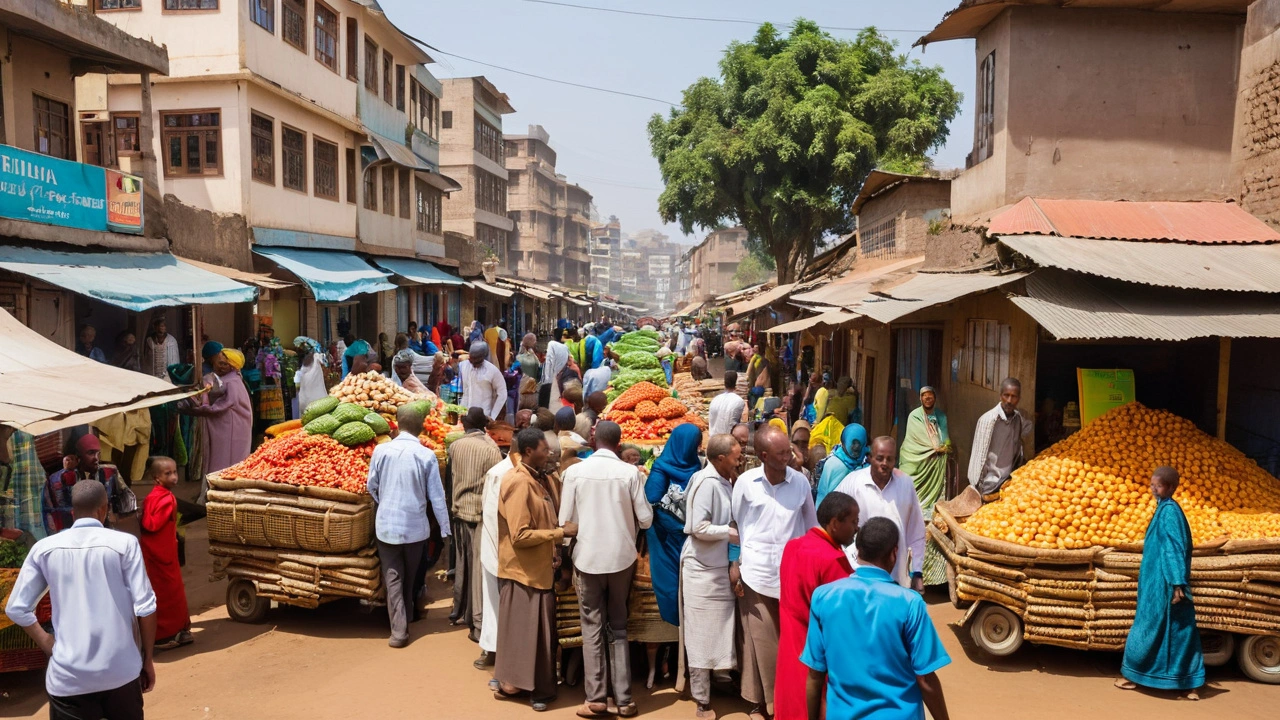
Healthcare
When talking about healthcare in Ethiopia, it’s crucial to understand the unique blend of public and private services available. The country has been making significant strides in improving its healthcare infrastructure over the past two decades. The public healthcare system, managed by the Ministry of Health, provides basic health services to the majority of the population. However, it's often underfunded and understaffed, especially in rural regions. Many expats and wealthier locals prefer private healthcare providers, which offer superior quality but at a higher price.
The cost of healthcare varies greatly depending on the type of services you need and the provider you choose. A visit to a general practitioner in a private clinic can cost anywhere between $10 to $50, which is affordable for many expats but can be substantial for locals. For emergency services or more serious treatments, costs can easily escalate. Medications are usually available at pharmacies, though it’s wise to carry a basic medical kit, particularly if you plan to travel to remote areas.
Insurance is another critical aspect to consider. While public health insurance schemes exist, they might not cover all the services you’ll need. Many expats opt for international health insurance plans that offer comprehensive coverage, including emergency evacuation. World Nomads and Cigna Global are popular choices among those living in Ethiopia. As with any insurance policy, make sure you read the fine print and understand what is and isn’t covered.
It's also important to note the prevalence of certain diseases in Ethiopia. Malaria, for instance, is endemic in many parts of the country. Preventive measures such as mosquito nets and anti-malarial medications are essential. According to the World Health Organization, around 3% of inpatient deaths in Ethiopia are attributed to malaria. Additionally, vaccinations for yellow fever, hepatitis A and B, typhoid, and rabies are strongly recommended.
Access to specialist services, like dental or optical care, can be limited, so it’s a good idea to get any major work done before relocating. Addis Ababa hosts most of the country’s specialist doctors, hospitals, and top-notch medical facilities. Outside the capital, options are more limited, so plan ahead if you have ongoing medical needs.
People often appreciate the efforts of local health workers, who do a remarkable job despite limited resources. As the Ethiopian Proverb goes, "When spider webs unite, they can tie up a lion." This saying beautifully reflects the healthcare situation, where collective effort and community support play a significant role. If you can, consider participating in community health initiatives or supporting local clinics through donations.
Entertainment and Miscellaneous
When it comes to entertainment and miscellaneous expenses in Ethiopia, there is quite a variety depending on your interests and lifestyle choices. One of the great things about living in Ethiopia is the range of activities you can engage in without breaking the bank. For those who enjoy nightlife, major cities like Addis Ababa offer vibrant clubs and bars. A night out usually costs around 200-300 ETB ($4-$6) for drinks and entrance fees.
Watching movies in local cinemas is another popular pastime. A ticket in one of the modern cinemas in Addis Ababa costs around 100 ETB ($2). The theaters usually screen both local and international films, so there's always something intriguing to watch. For the more artistically inclined, attending cultural shows with traditional Ethiopian music and dance is a must, usually priced at about 150 ETB ($3) per show.
Outdoor activities are also plentiful. Ethiopia's diverse landscape offers ample opportunities for hiking, especially in the Simien Mountains or Bale Mountains National Park. These can be cost-effective ways to spend your weekends if you're a lover of nature. National park entrances typically have reasonable fees, usually around 50-100 ETB ($1-$2).
For the fitness enthusiasts, gym memberships in urban areas cost around 500-1,500 ETB ($10-$30) per month. Some high-end facilities may charge more, but you'd be getting access to modern equipment and extra amenities like swimming pools and saunas. Those who prefer outdoor workouts can enjoy the many public parks free of charge.
Shopping in Ethiopia can be quite the experience, especially if you visit local markets. Items like fresh produce, traditional spices, and handcrafted goods are reasonably priced. An average expenditure for miscellaneous shopping per month can range from 1,000 to 3,000 ETB ($20-$60) depending on your personal taste and shopping habits.
Adding to the cost, if you love dining out, there is a wide array of options from budget-friendly local eateries to high-end international restaurants. A meal at a local restaurant costs about 50-100 ETB ($1-$2), while dining at upscale places might set you back 500-1,000 ETB ($10-$20). Internationally acclaimed chef Marcus Samuelsson once noted,
"Ethiopian cuisine is not just about food; it's a communal experience that brings people together."
Finally, let's not forget the role of technology and internet access in our miscellaneous expenses. Internet costs are relatively high compared to some other countries, with monthly charges for a decent home broadband connection averaging around 1,500-3,000 ETB ($30-$60). Mobile data packages are more affordable, typically costing around 500 ETB ($10) for 5 GB per month.
All things considered, entertainment and miscellaneous expenses in Ethiopia tend to be very affordable, especially when compared to many Western countries. With a bit of planning, you can enjoy a rich and fulfilling lifestyle without overspending. Whether you're into nightlife, outdoor adventures, or cultural experiences, Ethiopia offers a little bit of everything to make your stay memorable.
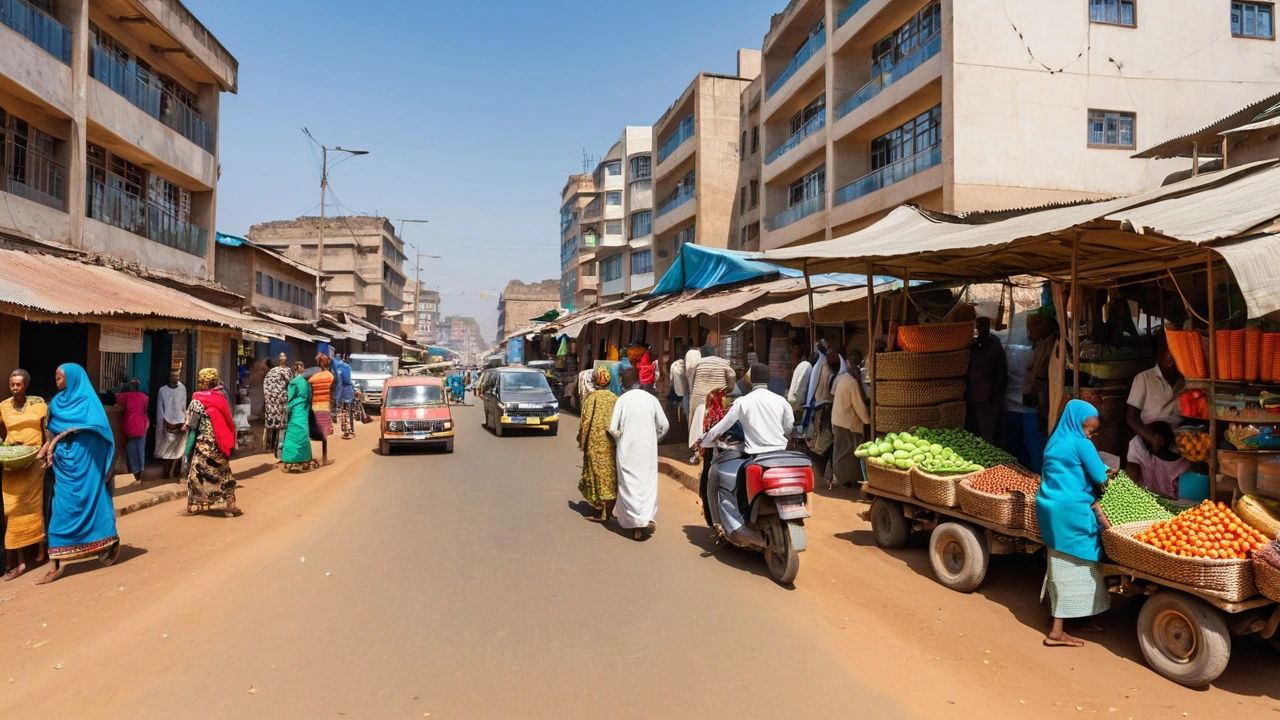
 English Teacher Salaries in Ethiopia: How Much Can You Earn?
English Teacher Salaries in Ethiopia: How Much Can You Earn?
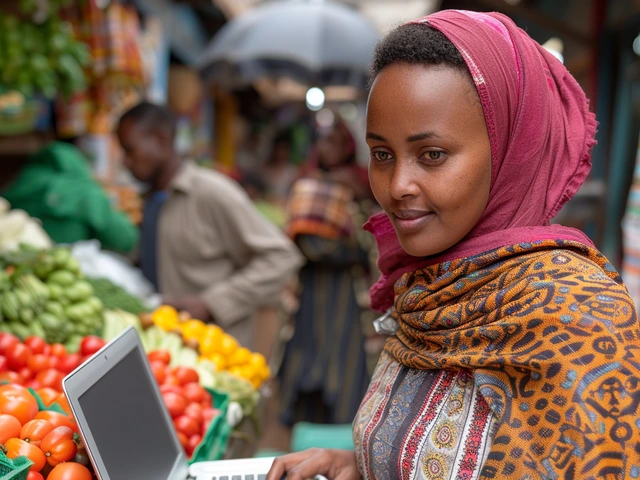 Exploring Ethiopia's Booming Industries: Key Sectors Driving Growth
Exploring Ethiopia's Booming Industries: Key Sectors Driving Growth
 How Many Millionaires Live in Ethiopia? Discover the Financial Elite
How Many Millionaires Live in Ethiopia? Discover the Financial Elite
 Unlocking Wealth: Ethiopian Millionaire Success Stories and Opportunities
Unlocking Wealth: Ethiopian Millionaire Success Stories and Opportunities
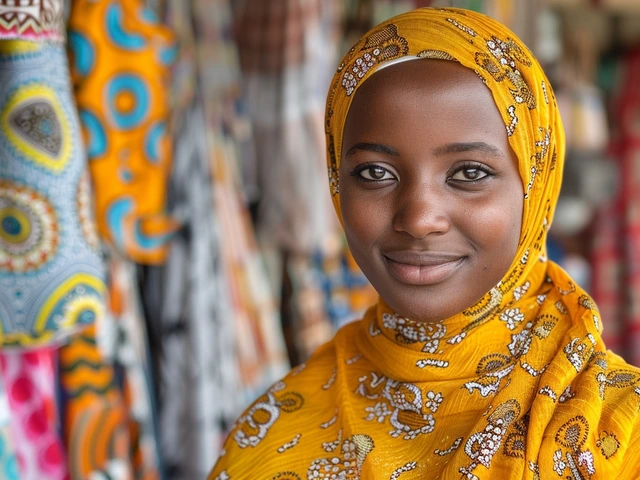 Cost-Effective Business Startups: Discover the Cheapest African Nations
Cost-Effective Business Startups: Discover the Cheapest African Nations
Eric DE FONDAUMIERE
July 27, 2024 AT 17:39Yo, this guide is a solid start, thx!
Pauline Herrin
August 9, 2024 AT 19:32The article provides a comprehensive overview; however, it overlooks the recent inflationary pressures affecting food prices in Addis Ababa, which could significantly alter the projected monthly budget.
pradeep kumar
August 22, 2024 AT 21:25While the guide lists transport costs, it fails to mention the unreliability of the minibuses during rainy seasons, which is a crucial factor for daily commuters.
love monster
September 4, 2024 AT 23:19Great rundown!
When I first landed in Addis, the housing market felt like a maze, but I quickly learned that negotiating lease terms directly with landlords can shave off up to 15% of the rent.
Don’t forget to factor in the seasonal utility spikes; the air‑conditioning bills in the hotter months can push your electricity costs well beyond the $100 mark mentioned.
Also, broadband providers often bundle services, so comparing offers from Ethio Telecom and private ISPs can net you a better deal.
On the food front, local markets such as Merkato are goldmines for fresh produce – you can get a kilo of tomatoes for less than a dollar if you haggle a bit.
If you’re accustomed to imported goods, be prepared for a steep price hike – a block of cheese that costs $5 here could be double that back home.
Transportation wise, I found the Ride app’s surge pricing during peak hours to be a hidden expense; setting a daily travel budget helps avoid surprises.
For inter‑city trips, the Ethiopian Airlines’ domestic network is surprisingly efficient, but booking a month in advance can reduce costs by up to 30%.
Health insurance is another area where expats often cut corners; a comprehensive plan that includes evacuation coverage is worth the extra premium, especially if you plan to explore remote regions.
The healthcare facilities in Addis are decent, but the quality drops sharply outside the capital – always carry a basic medical kit when venturing into the highlands.
Entertainment costs are generally low, but night‑life venues in the Bole area tend to inflate drink prices for tourists.
Gym memberships vary; I recommend checking community centers first, as they often offer subsidized rates for residents.
Finally, remember that the cost of living is highly lifestyle‑dependent – the figures you see are averages, and personal choices will push your budget either way.
Overall, embracing the local way of life not only enriches your experience but also keeps your wallet happy.
Christian Barthelt
September 18, 2024 AT 01:12Just a quick note: "LRT" should be capitalized, and the phrase "one‑hour" needs a hyphen. Also, "costs" is plural; you wrote "cost is" in the rent section.
Ify Okocha
October 1, 2024 AT 03:05The correction is trivial, yet the guide still underestimates the volatility of Ethiopian Birr against the dollar, which can cause the stated costs to fluctuate dramatically within a single month.
William Anderson
October 14, 2024 AT 04:59Frankly, the entire piece feels like it was cobbled together from outdated travel blogs. The housing sector in Addis has exploded since the last report, and your $300‑$600 range for a city‑center apartment is now obsolete.
Sherri Gassaway
October 27, 2024 AT 05:52One could argue that any guide attempting to quantify human experience inevitably reduces it to mere numbers, thereby stripping away the cultural essence that truly defines living in Ethiopia.
Milo Cado
November 9, 2024 AT 07:45Indeed, while statistics provide a framework, the real value lies in immersing oneself in the local customs, sharing coffee ceremonies, and embracing the community spirit. 😊
MONA RAMIDI
November 22, 2024 AT 09:39Enough with the nostalgia! If you’re not willing to adapt, you’ll end up paying premium prices for imported goods and boutique hotels, which defeats the purpose of moving to Ethiopia in the first place.
grace riehman
December 5, 2024 AT 11:32Hey folks, just want to add that many locals are happy to share tips on where to find authentic meals at cheap prices – just ask around in the markets and you’ll feel right at home.